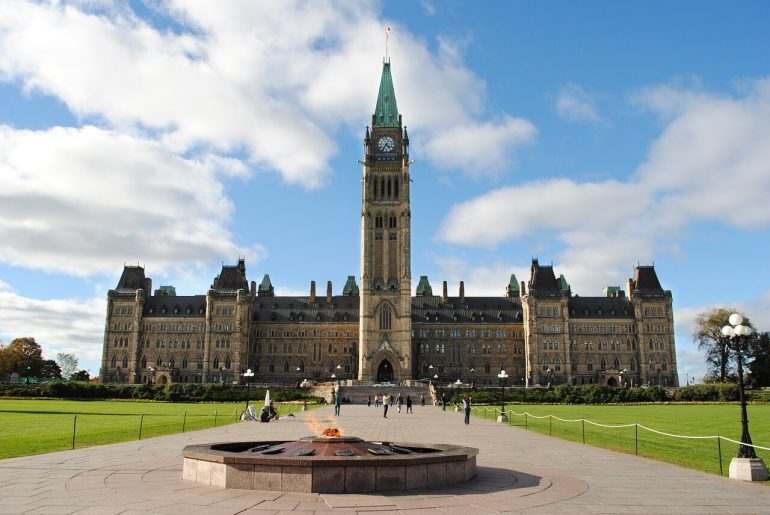The Chamber of Digital Commerce Canada, an association representing the digital asset and blockchain industry, has released a set of recommendations to the federal government to create a clear regulatory framework for the advancement of blockchain.
“Having a favourable climate is the first step to helping businesses thrive.”
– Tanya Woods
The organization said Canada’s digital asset ecosystem is currently being stifled due to a lack of regulatory clarity and a lack of commitment from the government. BetaKit spoke with Tanya Woods, managing director of Canada for the Chamber of Digital Commerce, who said if Canada can achieve a level of coordination, it will be able to create a welcoming environment for businesses.
“Canada’s blockchain innovation is largely plagued by regulatory and policy challenges or gray areas,” Woods told BetaKit. “And as a result, we’ve seen tremendous amounts of innovation leave the country or be chilled in comparison to their counterparts, like AI, video games, or big data.”

The three key recommendations in the report are for the government to: pass clear federal mandates and coordinated policymaking efforts; offer pro-growth statements, programs, and policy to encourage the private sector; and create an all-party blockchain caucus and cross-departmental industry task force.
The first recommendation addresses what the Chamber of Digital Commerce Canada called the biggest challenge faced by Canada’s blockchain ecosystem – a lack of clear and coordinated mandates, policies, and regulatory efforts. In order to create this, the organization is suggesting policies to clearly define regulatory oversight of the various aspects of the digital asset market, ensure terminology and definitions for digital assets correspond to one another, and clarify tax and accounting treatment of digital assets across the country.
Woods gave the example of certain digital assets being viewed as either securities or properties depending on the jurisdiction. The lack of clarity in defining these assets has made them a challenge to regulate, the pitfalls of which were demonstrated in the case of Quadriga this year.
RELATED: How can Canada prevent another QuadrigaCX?
“Innovators have no idea what the requirements are to be successful and move forward,” Woods said. “They just get stuck in this rabbit hole of regulation. That’s a very, very difficult challenge to address. But we do think that the country’s ready, and we think there are enough people that understand it in the right places that can help.”
The second recommendation is to address the exodus of talent and Canadian-founded projects through sector-promotion and programs to draw in blockchain innovators and their companies. The organization also said it encourages leaders to make public statements acknowledging and celebrating Canadian blockchain innovation.
“We want to see is more of a celebration of blockchain innovation as a vertical.”
“In our news cycle in Canada, we’ve had a lot of [un]favourable publicity about unusual situations and companies, and it sort of downplayed what has actually been happening here, which is truly nothing short of incredible,” Woods said. “We want to see is more of a celebration of blockchain innovation as a vertical.”
Woods said she was disappointed to find Canada’s new Digital Charter, which looks to combat hate speech, misinformation, and online electoral interference, made no real mention of blockchain. She said the gap being experienced in blockchain can be attributed to a lack of education and understanding, and that leaders have been avoiding the discussion around blockchain, for this reason.
“It has been, for four years, a very concerted effort by the government to be attracting the best and brightest talent in the digital space and attracting great projects. [Blockchain] is a totally neglected area,” Woods said. “We need to be attracting and retaining blockchain innovators. It’s time to actually build this [policy] into everything.”
RELATED: Blockchain used for clinical trials, in Boehringer Ingelheim & IBM Canada partnership
The third and final recommendation from the Chamber of Digital Commerce Canada is to establish an all-party blockchain caucus on Parliament Hill. It also recommended the creation of an industry task force to ensure that political and policy leaders are keeping pace with the ecosystem.
“These are two very important places to have dialogue,” Woods said. “Having a favourable climate is the first step to having businesses here thrive.”
The organization said the federal government has shown early signs of interest to expand Canada’s blockchain innovation capacity, adding that this year’s federal election could be an opportune time to further the conversation.
Image courtesy Pixabay


